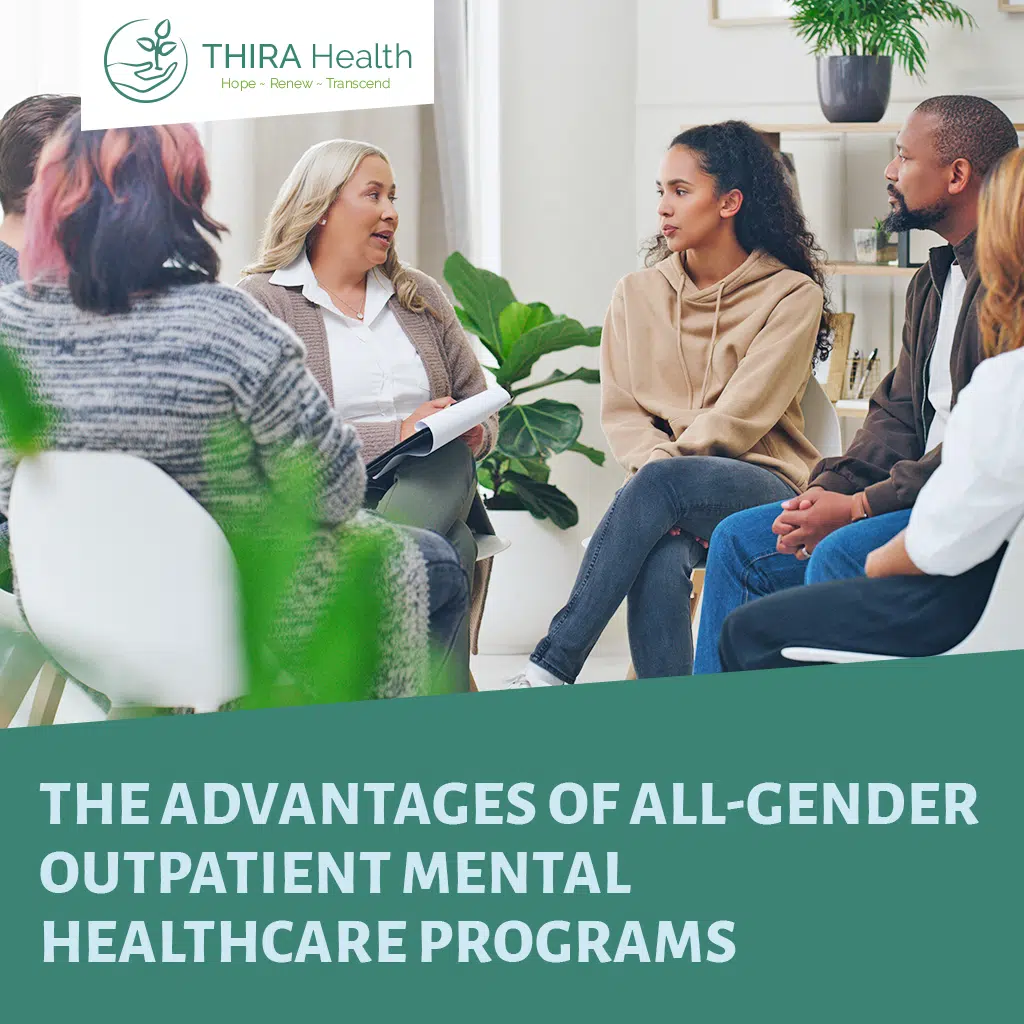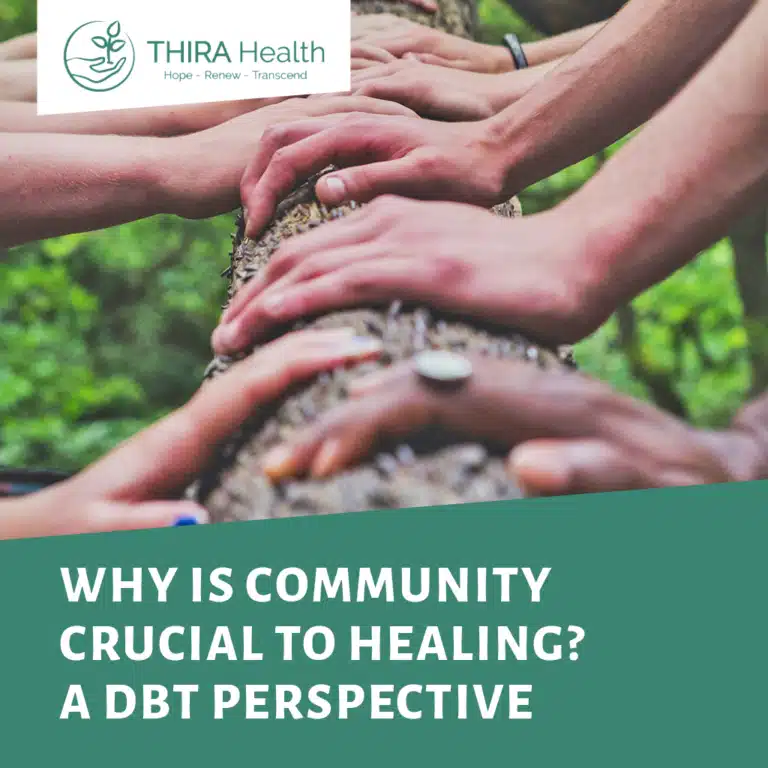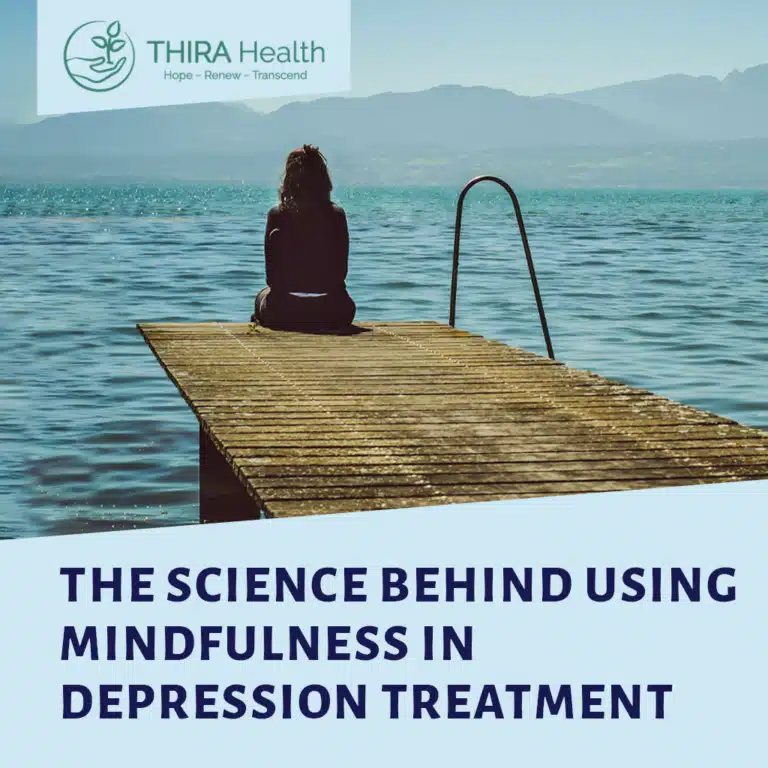#BreakTheBias: Hashtags for Empowerment
March 8 is a day where women and their allies across the globe celebrate the achievements of women (e.g., social, economic, cultural, political), while also calling in others to join the fight in gender equity. Even though this day has been celebrated for over a century, we are still fighting for equitable wages, representation, acknowledgment of intersectionality, and recognition. This year’s campaign theme is #breakthebias.
Here at THIRA Health, we contribute to this fight for change and improvement by acknowledging how the mental health of women is affected by the inequities and biases they face. On International Women’s Day and every day, we hope to use our platform as mental health practitioners and advocates to highlight how women can use their voices to feel as empowered and capable as we know they are.
Mental Health for All Women
Women – Black women, disabled women, trans women, immigrant women, poor women – endure a range of hurdles to wellness, health, and success. In addition to identification as women, it’s important to name what Kimberlé Crenshaw coined as “intersectionality” among these identities so that we can properly name, address, and dismount the biases held against us. While we are all women, we fight different battles. Therefore, creating awareness of the struggles of women is a baseline in establishing how systems of power affect us. Many women face compounded biases, which deteriorate mental health based on what is thrown at you, what you can survive, and the resources available to you.
We frame the mental health of women as mental health for ALL women. In the words of Audre Lorde, “I am not free while any woman is unfree, when her shackles are very different from my own.”
An International Women’s Day Challenge: Biases vs. Bias-Breakers
On this global day of celebration and accountability, we will list some ways that women can create empowerment as we look through the lens of mental health. Let’s break a few biases together by raising our voices in honor of liberation, community, and healing through love.
Bias: Women are less skilled, therefore deserve less pay than their male counterparts.
Women whose skills, talents, or qualities are disenfranchised in the workplace can add to the stress of feeling incompetent or discouraged. We often internalize what the world expects of us. In this case, if we accept that we are simply less skilled based on our physical appearance or assigned gender, we accept that our individual talents belong permanently to a group that is seen as less than. Aside from the way that impacts our esteem, women who receive less pay (in terms of all women, Black women are most affected by wage gaps) arguably have fewer resources, less financial freedom, and if you are a woman with children, are seen as less committed to your work. When combined, these biases can be a detriment to women’s mental health, creating anxiety, imposter syndrome, learned helplessness, and depression.
Vs.
Bias-Breaker: Gender is not a determinant of skill or aptitude, and women deserve pay and recognition that reflects their contribution.
The ways we can resist these biases come at the macro-level, such as holding major corporations accountable to efforts of diversity, equity and inclusion regarding wage equality and equitable hiring practices (e.g., calling your legislators, joining political groups that prioritize feminist action), as well the micro-level, which is negotiating your wages with a boss, discussing pay with male coworkers, and investing your time in women-led spaces that focus on leadership and community-building.
Bias: Women are just naturally more emotional than men.
The idea that women are more prone to strong expression of emotion can ironically be pointed to the field of mental health, specifically in the 19th century where hysteria took shape as a diagnosable condition, plaguing women and people of color as something uncontrollable. Women were often subjected to forced hysterectomies due to this limited belief that the uterus was the root of all emotional turmoil – therefore, men couldn’t contract this condition. This has left women and people of color subjected to stereotypes such as “overemotional,” “angry,” or “dramatic,” when the reality is that power and oppression create a rage that is intuitive, informative, and guttural.
Vs.
Bias-Breaker: Women are conditioned to be caring, nurturing, or empathetic, whereas men are instructed to suppress emotion and act tough.
Women are conditioned to be “sweet,” “quiet,” or a “good girl.” These qualities are rooted in women being smaller so that there’s room for men to dominate, flourish, and succeed while we maintain our role as support staff. Not only are emotions not specific to one sex or gender, but this binary language also limits the capacity for all of us to feel it all. All people along the gender spectrum feel things; however, women have been handed consequences for their emotions, such as not being taken seriously, stereotyped, or shamed, instead of being understood and listened to. We can break this bias by encouraging the men around us to speak on emotions, validate fellow women who express emotionality, normalize therapy as a place to process through it, and become more compassionate of our own emotional processes as a source of power.
The theme of this celebration and accountability piece is when we speak up, we speak out…
When we speak out, we recognize all that women have to offer, making their contributions vast and large…
So then instead of becoming smaller, we take up more room…
Because when we take up more room and pile in together, we shatter the glass ceiling that was keeping us all trapped.
To learn more about our mental health services for women and girls, contact us now!










